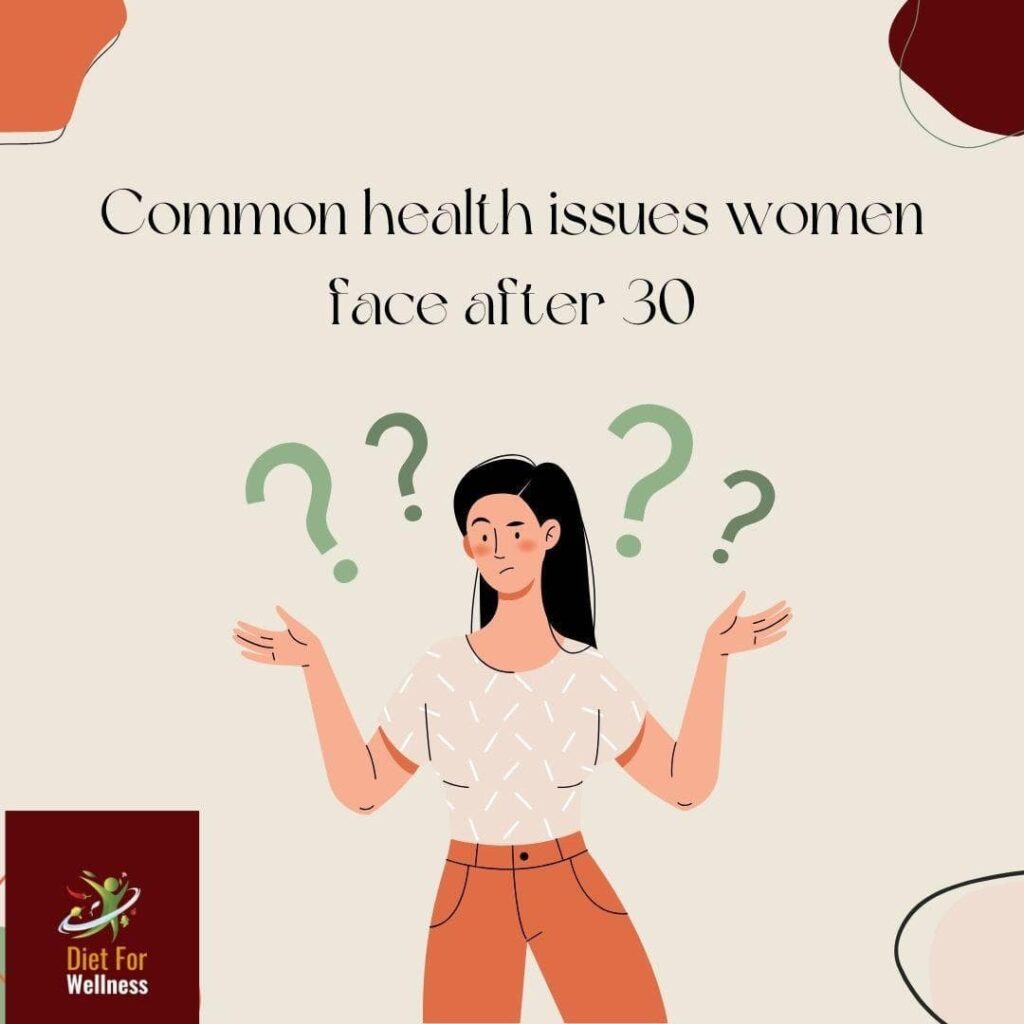Health problems that women face after 30s

As women reach the age of 30, many find themselves established in both their personal and professional spheres. They are often deeply immersed in their careers, perhaps married, and may be considering starting a family or already managing the responsibilities of parenthood.
However, amidst these busy and fulfilling roles, it’s common for women to unintentionally overlook their physical well-being. Often, they disregard general symptoms and neglect to prioritize comprehensive health check-ups. Through this blog, we’ll first explore some common health issues women face after 30.
1. Hormonal Changes
One of the most significant shifts women experience in their 30s is hormonal changes. This period often marks the beginning of perimenopause, the stage preceding menopause. Fluctuating estrogen and progesterone levels can lead to symptoms like irregular periods, hot flashes, mood swings, and changes in libido. Women need to recognize these signs and consult with their healthcare providers for appropriate management strategies. Hormone replacement therapy and lifestyle modifications can help alleviate symptoms and support overall well-being.
2. Fertility Concerns
For many women, the 30s are a time when fertility becomes a pressing issue. As women age, their ovarian reserve declines, making conception more challenging. It’s crucial for women who are planning to start a family to be proactive about their reproductive health. Consulting with a fertility specialist, tracking ovulation cycles, and maintaining a healthy lifestyle can improve the chances of conception. Additionally, for women who are not ready for children or are experiencing fertility issues, exploring options like egg freezing or assisted reproductive technologies may offer hope for the future.
3. Metabolic Changes
Metabolism tends to slow down as women age, making weight management more challenging. Factors such as decreased muscle mass, hormonal fluctuations, and lifestyle habits can contribute to weight gain and metabolic disorders like insulin resistance and metabolic syndrome. Adopting a balanced diet rich in fruits, vegetables, lean proteins, and whole grains, along with regular exercise, can help maintain a healthy weight and reduce the risk of chronic diseases like diabetes and heart disease.
4. Bone Health
As women enter their 30s, bone density begins to decline, putting them at increased risk of osteoporosis and fractures. Adequate calcium and vitamin D intake, along with weight-bearing exercises like walking, jogging, or weightlifting, are crucial for maintaining bone health. Additionally, avoiding smoking and excessive alcohol consumption can help preserve bone density and reduce the risk of fractures later in life.
5. Mental Health
The 30s can be a stressful time for many women as they juggle careers, relationships, and family responsibilities. Mental health issues like anxiety and depression are prevalent during this stage of life and can have a significant impact on overall well-being. Women need to prioritize self-care activities like mindfulness, meditation, exercise, and seeking support from friends, family, or mental health professionals when needed.
Summing up
Dealing with health challenges in the right way in their 30s requires women to be proactive about their well-being and prioritize self-care. They should not shy away from addressing hormonal changes, fertility concerns, metabolic health, bone health, and mental well-being. This way they will be able to optimize their health and quality of life as they journey through this transformative decade.
Regular check-ups with healthcare providers, adopting healthy lifestyle habits, and seeking support when needed are essential components of maintaining optimal health in your 30s and beyond.
